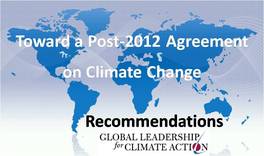- Home
- Case for Action
- IMFUND
- Solution - 3rd generation
- Buy-in
- AGF
- Achievements
- Awards
- Negotiations
- Bali 2007
- Bangkok 2009
- Barcelona 2009
- Bonn 2008
- Bonn 2009
- Bonn 2011
- Bonn 2013
- Brussels 2008
- Cancun 2010
- Copenhagen 2009
- Doha 2012
- Durban 2011
- Geneva 2009
- Lima 2014
- London 2008
- London 2009
- London 2010; 1
- London 2010; 2
- London 2011
- London 2012; 1
- London 2012; 2
- London 2013
- Montreal 2013
- Panama 2011
- Paris Goals 2016
- Poznan 2008
- In limbo ...
- Presentations
- Historical
- Search
- About
@ Bangkok & Singapore
 The latest version of IMERS was well received by many delegations at the UNFCCC climate change negotiations (28 Sept - 09 Oct, 2009). Three weeks later it was disclosed publicly in Singapore
The latest version of IMERS was well received by many delegations at the UNFCCC climate change negotiations (28 Sept - 09 Oct, 2009). Three weeks later it was disclosed publicly in Singapore ![]() (0.4 MB).
(0.4 MB).
Our proposal has also been included in recommendations for negotiators distributed in Bangkok. The recommendations came from a task force comprising former heads of state, leaders from government, business and civil society in a report Toward a Post-2012 Agreement on Climate Change: Recommendations ![]() (1 MB).
(1 MB).
The recommendations are from the Global Leadership for Climate Action (GLCA), a partnership of the Club of Madrid and the United Nations Foundation (UNF). The report consolidates the key GLCA recommendations for all areas of the Bali Action Plan. It includes financing recommendations from the comprehensive adaptation report, distributed to negotiators in June 2009.
Progress in Bangkok
The recent top-down simplification of IMERS, that made the proposal even more attractive, has been discussed "behind closed doors". The proposal has gained more traction with several key delegations.
Public disclosure in Singapore
The details of the new version were disclosed at the Carbon Forum Asia, Singapore, 26 - 27 October.
In a nutshell:
- a market-based levy would apply to all ships engaged in international transport,
- each developing country would be entitled to a refund, in proportion to its share of worldwide imports,
- a country could forego the refund,
- 100% of revenue raised, estimated at $10bn+ annually, would go to climate change action.
A short presentation of the refund proposal is available
